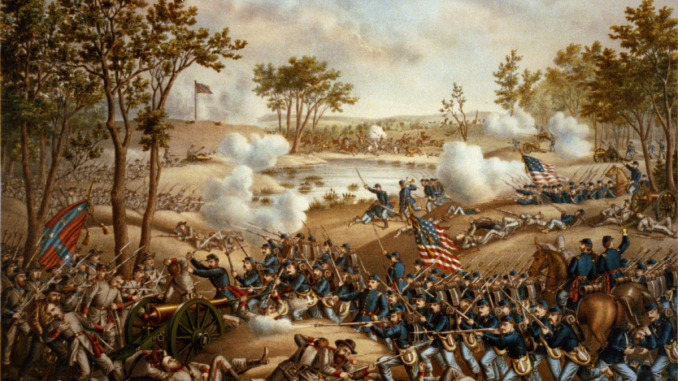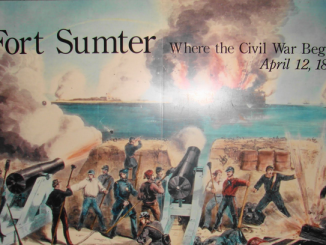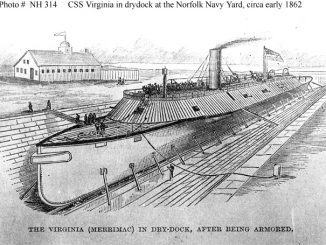
Grant’s Army of the Potomac and Robert E. Lee’s Army of Northern Virginia had already inflicted frightful losses upon each other as they wheeled along an arc around Richmond, Virginia—from the Wilderness forest to Spotsylvania and numerous smaller battle sites—the previous month.
Widget not in any sidebars
On May 30, Lee and Grant collided at Bethesda Church. The next day, the advance units of the armies arrived at the strategic crossroads of Cold Harbor, just 10 miles from Richmond, where a Yankee attack seized the intersection. Sensing that there was a chance to destroy Lee at the gates of Richmond, Grant prepared for a major assault along the entire Confederate front on June 2.
But when Winfield Hancock’s Union corps did not arrive on schedule, the operation was postponed until the following day. The delay was tragic for the Union, because it gave Lee’s troops time to entrench. Perhaps frustrated with the protracted pursuit of Lee’s army, Grant gave the order to attack on June 3—a decision that resulted in an unmitigated disaster. The Yankees met murderous fire, and were only able to reach the Confederate trenches in a few places. The 7,000 Union casualties, compared to only 1,500 for the Confederates, were all lost in under an hour.
Grant pulled out of Cold Harbor nine days later and continued to try to flank Lee’s army. The next stop was Petersburg, south of Richmond, where a nine-month siege ensued. There would be no more attacks on the scale of Cold Harbor.







Be the first to comment